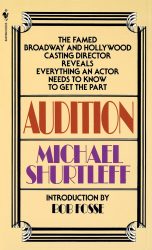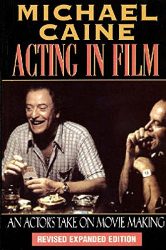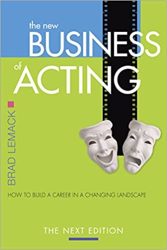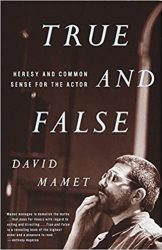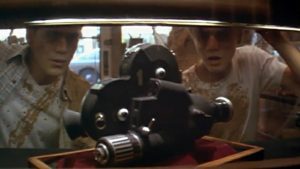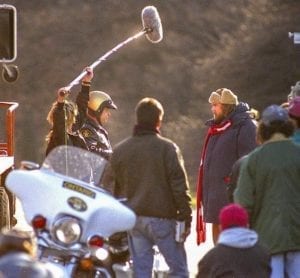
If you are looking up how to prepare for your first meeting with an acting agent, chances are you’ve stumbled upon many articles that tell you to think up a list of questions that you would like to ask the agent… But, these articles often won’t give you many examples of which questions can simultaneously be helpful to you while impressing the agent. So, we have remediated that by compiling a list of the 10 best questions to ask an acting agent:
Ask questions about the agent: their career, the projects they work on, and their communication preferences. Ask about what they like about you, how they see you being booked, and what they expect of you. You can also ask logistical questions about how the contract works and what the next steps are.
You can find the 10 best questions to ask an acting agent below, along with an explanation of why they are so valuable!
1. Tell me about your career as an agent
At this point of the meeting, the agent will probably already have asked you many questions about yourself. So, change it up by asking them some questions about them. This will demonstrate your interest in the agent, and it can act as a transition into a conversation about how you can work together. You can ask them questions like:
- How did you get started in the industry?
- How long have you been an agent?
- How long have you been at the agency?
- What do you like most about your job?
These questions will give you a better idea of who the agent is and how experienced they are. There is no right or wrong answer here; you just have to determine if you think you’d be a good match. Just remember to keep these questions conversational and avoid shooting one after the other like it’s an interrogation.
A word of caution here is that some agents might want you to know a bit about them before you have this meeting. Or might get a little offended by questions about their history. The way to get around this is to start off with a compliment or some facts about the agent before you ask them these questions. For example you can say something like this:
- “I saw on your website that your agency has been around for 10 years but is that when you got started? I am curious how long you have been in the industry and did you start as an agent?”
- “I saw some reviews and a lot of your clients seem to really like working with you. Are you still enjoying the process? What do you think is going to be your next step in your career?”
2. What kind of projects do you typically work on?
This is a significant indicator of whether the agent is a good match for you or not. If your dream is to work in theatre, and the agent mainly represents TV actors, that’s not going to work. Depending on where you live, there might be a disproportionate amount of agents who focus mainly on commercials, for example, while in other regions, others might not look at commercials at all. So, make sure that the agent you are considering works in the same sector of the industry as you would to avoid wasting both your time.
If you have IMDbPro, you can research the agent’s roster to find out the answer to this question ahead of the meeting. On the agent’s profile, you will see their roster, and you will be able to look at each of the agent’s clients and what types of gigs they are booking.
3. What do you like about my work?
This might seem like a bold question, but it’s a crucial one! First, this will give you an idea of how people in the industry perceive you. Is it your looks that piqued the agent’s interest, or is it your acting ability? It’s extremely valuable to learn how someone in the industry perceives you because you can capitalize on your selling point when marketing yourself.
Second, the agent’s answer will also help you determine whether you are a good fit for each other. If they see you as a great drama actor when your goal was to make it in the comedy scene, it might be a sign to step back and reassess whether this is the agent you want to work with for the next year or so.
I can tell you from my personal experience that one agent I had really thought I had a lot of potential because of my acting ability while another wanted to book me mainly because I could submit for Latino and Middle Eastern parts.
4. How do you see me being booked?
Regardless of whether you end up working with this agent or not, knowing what kinds of parts they can imagine you booking is valuable. If you constantly get answers about you being the same kind of type, you can make sure you have headshots that clearly show you as that type. Knowing how the agent sees you can also help you decide whether you want to work with them or not. Be prepared to also provide your own opinion on what kinds of roles you think you are a good fit for.
5. What are your expectations of me?
Speaking of a symbiotic match… A great way to demonstrate to your prospective agent that you are willing to put in the work to become a successful working actor is to ask them, “What are your expectations of me?” This question will show them that you are aware of- and ready to tackle the work ahead of you.
An agent wants to see that their prospective client will be worth the work that they themselves put into finding breakdowns and auditions. So go ahead and make a good impression on your future agent with this question.
As a follow-up, you might want to bring up whether you can keep auditioning for student and independent films, if you can work background, if you can submit yourself on your own for projects, and/or whether you can send them casting calls that you think they might not have seen.
6. What should I do to make myself more marketable?
This might seem similar to the previous question, but it’s more focused. When agents speak about marketing materials, they are referring to your resume, your demo reel, your headshots, and your casting profiles. So asking about what you can do to make yourself more marketable will likely lead the agent to give you quick but powerful tips on how to tweak your marketing materials to make yourself stand out from other actor submissions.
It is possible that an agent will give a vague answer or wait until you are their client to give you such direct feedback, but it’s worth a shot! Plus, this will also prove that you are eager to do what it takes to succeed in the industry and that you won’t drag your feet when your agent suggests that it’s time to go get another headshot, for example.
7. How do you stay in touch with your clients?
Every agent is different, and each will have their own answer. Some agents (often those with a larger roster) prefer to only contact their clients when they have submitted them for auditions and when they receive news from said auditions. Others will check in once a week or once a month, no matter what. Some agents prefer emails, while others like to call. Some will want feedback regarding how your auditions went, and others will do limited check-ins.
Again, there is no right or wrong here; just make sure their answer is in line with your preferences. If you envision being frequently in contact with your agent, make sure you sign with an agent who has the time to chat often (like a smaller, more hands-on agency). But if you don’t feel like you need constant check-ins, then maybe you can go with a bigger agency with a larger roster and more experience in the industry.
8. If I find a breakdown for which I am suitable, can I call you?
This question will also give you a glimpse of what your relationship with the agent will be like. Some busier agents with a larger roster might not have the time to look through all the character breakdowns that their actors find on their own. In this case, getting a “no” from them is perfectly understandable. But, if you are working with a newer agent with a smaller roster, they might be open to submitting you for the auditions you find on your own. This is excellent news since it could increase your chances of being called for said audition.
9. How does your contract work?

Contracts are intimidating, especially when starting out in the industry. You might feel uncomfortable asking questions about it but think of it like this: a contract is a roadmap that outlines the parameters of your relationship. So you must understand it! It will describe what is expected of you and of your agent. The contract will specify the limitations of your relationship and what are the repercussions of breaching the contract. That said, three main clauses are of utmost interest to you: time frame, payment, and termination.
Time frame outlines how long the agent will represent you, after which the contract can either be renewed or terminated. Typically, contracts are for one year. Anything longer than that should be a red flag for you. Think of it as a probation period: you want to ensure that you like the agent before signing a long-term contract with them. If the agent proposes a multi-year contract, and you would still like to work with them, let them know that you would prefer a 1-year contract. If they insist on a multi-year contract, take a step back, and consider your options.
Payment. Specifically, the agent’s compensation. Talent agents charge a commission rate on your revenue, which ranges from 10-20%. 10% is the union standard for SAG-AFTRA in the US. Meanwhile, in Canada, the percentage is closer to 15%. No matter where you are located, be wary of anything over 20%.
Termination. This can be especially awkward to ask about. Still, it’s essential to discuss the potential termination of a contract while everything is going well. Ensure you understand the grounds for termination of the agreement, including the time frame, communication specifics, and proof required.
A few more tips regarding contracts:
- Keep in mind that all the major acting unions as well as industry associations will have standard contracts on their websites. Most agents will probably use these if they are a member of these associations. You can actually go and see these websites and find terms of the contract.
- If your prospective agent is not a member of these associations, be a little more skeptical and cautious.
- Don’t sign the contract right there and then. Most good agents will give you time to review it and ask you to contact them with any questions you might have.
10. What are the next steps in us working together?
Depending on how the agency is structured, the agent might have to confer with their colleagues about bringing you into their roster. So ask the agent what timeline you should expect in receiving a response from them. If you haven’t heard from them and the deadline they have given you has already passed, you can follow up with them through email.
Conclusion
Here you have it: 10 great questions to ask an acting agent on your first meeting! These questions will not only show the agent how eager you are to put in the work to make it in the industry, but they will also help you gauge whether this agent is a good fit for your needs.
If you are preparing for your first meeting with an agent and would like to ensure that your marketing materials are up to par, check out this article on how to find real examples of actor resumes, headshots, and demo reels.
